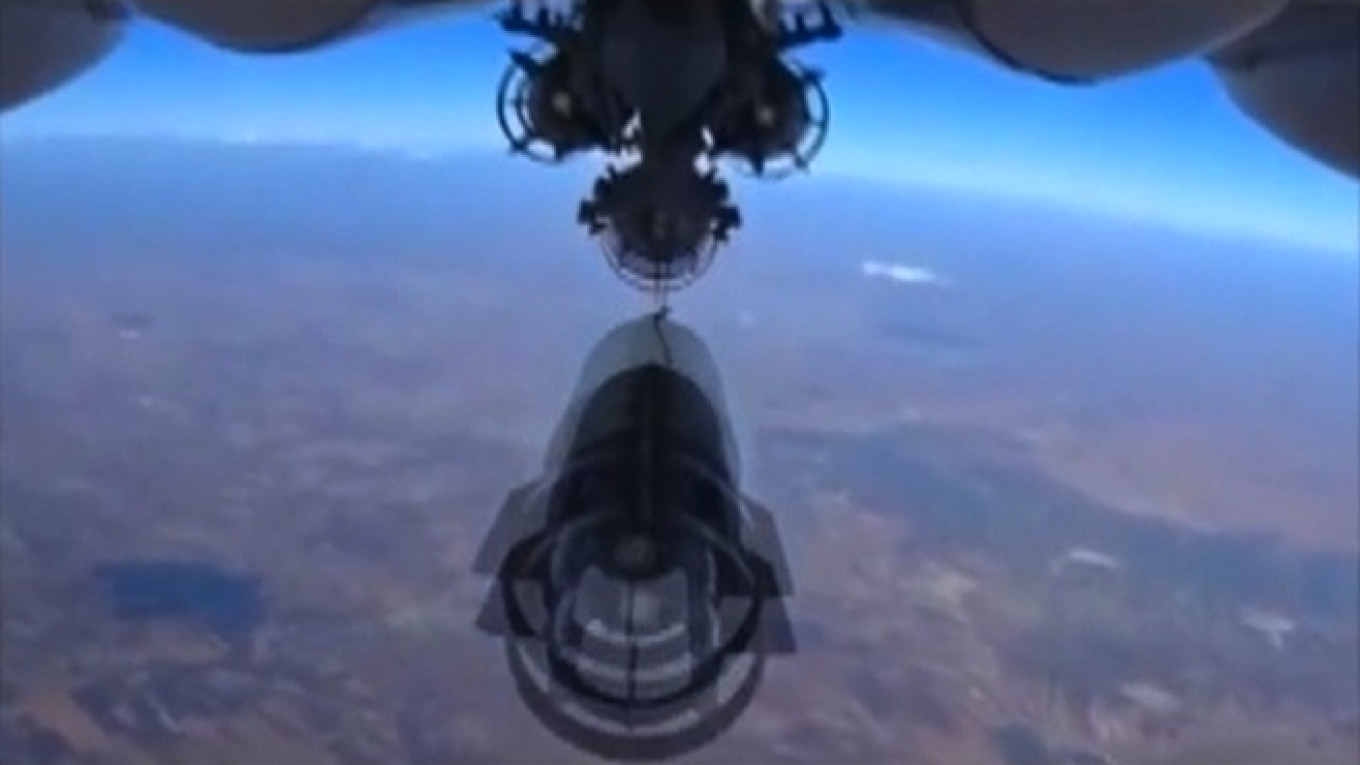NAVAL AIR STATION SIGONELLA, Italy — Russia moved on Tuesday to resume military talks with the United States aimed at setting rules for air-to-air conduct over Syria, a U.S. official said, as the former Cold War foes carry out parallel, uncoordinated campaigns of air strikes.
The discussions on ways to keep the U.S. and Russian aircraft from clashing over Syria, launched last week, have gained urgency after the United States and NATO denounced Russia for violating Turkish airspace.
Turkey, a NATO ally, threatened to respond, raising the prospect of direct confrontation.
During a trip to Europe, U.S. Defense Secretary Ash Carter described the need to resume talks as urgent, and condemned Russia's "seriously irresponsible and unprofessional" violation of Turkish airspace.
Hours later, a U.S. official, speaking on condition of anonymity, told reporters Moscow had indicated it was willing to resume talks but no date had been set.
Russia's deputy defense minister, Anatoly Antonov, was quoted by the TASS news agency on Tuesday as saying the Russian military agreed in principle with the proposals made by the United States on coordinating military flights.
But he was quoted as saying differences remained, that the potential for collaboration was "much wider" than what Washington was offering, and that Russia had made its own proposals, though he did not specify what they were.
"To our regret, the Americans are for now saying that our cooperation should be limited to technical questions concerning our pilots when they carry our their missions," said Antonov.
"The Americans have handed us a document, which we are working on. The general staff supports the document in principle."
He said the two countries would hold a second joint video conference on the subject in the "coming days."
"But it would be better if our [U.S.] colleagues came to see us at the Defense Ministry so we could talk face-to-face about all the problems we face," Antonov was quoted as saying.
The U.S. proposal includes basic safety protocols, such as maintaining a safe distance between U.S. and Russian aircraft and using common radio frequencies for distress calls, officials say, adding they would be similar to civil aviation.
Pentagon spokesman Peter Cook said the United States awaited a formal response from Russia on the U.S. proposals.
"We stand ready to meet again to continue our earlier discussion as soon as possible," Cook told reporters traveling with U.S. Defense Secretary Ash Carter in Italy, declining to offer further details.
Carter expressed frustration that Russia, after calling for talks with the United States, had let so much time elapse before getting back in touch on the U.S. proposals for air conduct.
"That may be a further sign of their strategic confusion, I don't know," he said, speaking to reporters earlier in Spain.
The United States and Russia say they have the same enemies: the Islamic State group of Sunni Muslim militants who have proclaimed a caliphate across eastern Syria and northern Iraq.
But the United States fiercely opposes Moscow's support for Syrian President Bashar Assad and accuses Moscow of mainly targeting other insurgents who oppose Assad, rather than the Islamic State.
Carter said Moscow's strategy of bolstering Assad would backfire.
"In Syria, they are going to be checked in the first instance by the backlash that they're going to get on account of siding with Assad against everyone else," Carter said.
A Message from The Moscow Times:
Dear readers,
We are facing unprecedented challenges. Russia's Prosecutor General's Office has designated The Moscow Times as an "undesirable" organization, criminalizing our work and putting our staff at risk of prosecution. This follows our earlier unjust labeling as a "foreign agent."
These actions are direct attempts to silence independent journalism in Russia. The authorities claim our work "discredits the decisions of the Russian leadership." We see things differently: we strive to provide accurate, unbiased reporting on Russia.
We, the journalists of The Moscow Times, refuse to be silenced. But to continue our work, we need your help.
Your support, no matter how small, makes a world of difference. If you can, please support us monthly starting from just $2. It's quick to set up, and every contribution makes a significant impact.
By supporting The Moscow Times, you're defending open, independent journalism in the face of repression. Thank you for standing with us.
Remind me later.


